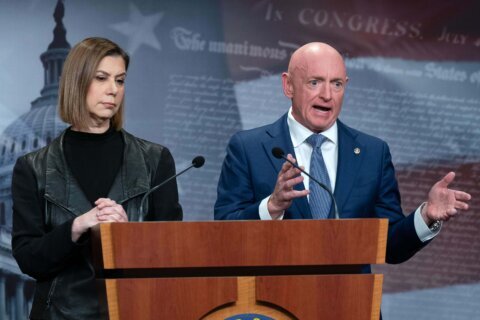WASHINGTON — Former felons could have more success securing employment under bipartisan legislation introduced Thursday that would bar federal employers from requesting applicants’ criminal histories before conditional job offers.
Reps. Elijah Cummings, D-Baltimore, and Doug Collins, R-Georgia, joined with Sens. Cory Booker, D-New Jersey, and Ron Johnson, R-Wisconsin, to propose the Fair Chance Act, an attempt to decrease rates of recidivism by helping ex-convicts secure jobs.
The bill would “ban the box,” directing employers to discontinue applications requiring candidates to check a box indicating their criminal records.
“This bill would give individuals who are reentering society from prison a fair chance at truly achieving the American dream and becoming contributing members of our communities,” said Cummings, chairman of the House Oversight and Reform Committee.
“We have a criminal justice system where the collateral consequences for Americans with a criminal conviction are like getting a life sentence — affecting their ability to vote, to get housing and critically, to get back to work,” Booker, a presidential candidate, said in a statement.
Thirty-three states and more than 150 cities and counties have adopted laws or policies that “ban the box,” extending the jurisdiction of such policies to almost three-fourths of the U.S. population, according to the National Employment Law Project.
The Fair Chance Act specifically prohibits the federal government and federal contractors from making inquiries into the criminal histories of ex-offenders before the conditional offer stage.
This follows President Donald Trump’s Tuesday State of the Union address in which he spotlighted criminal justice reform, saying “America is a nation that believes in redemption.”
Trump invited a former inmate to the address who was directly affected by the First Step Act, a bill Trump signed in December that seeks to help nonviolent offenders readjust to society.
“This legislation reformed sentencing laws that have wrongly and disproportionately harmed the African-American community,” Trump said.
Similarly, Cummings’s panel noted that black men with a criminal record “have been 60 percent less likely to receive a callback or job offer than those without records.” That is nearly 10 percentage points higher than the callback rate for male felons in general.
“Getting people back to work improves the safety of our communities, strengthens families, and reduces government dependence — goals that all Americans share,” Johnson said in a statement. “If someone getting out of prison wants to work and be a productive member of society, we should do everything possible to facilitate that. The Fair Chance Act is an important step in that direction.”







